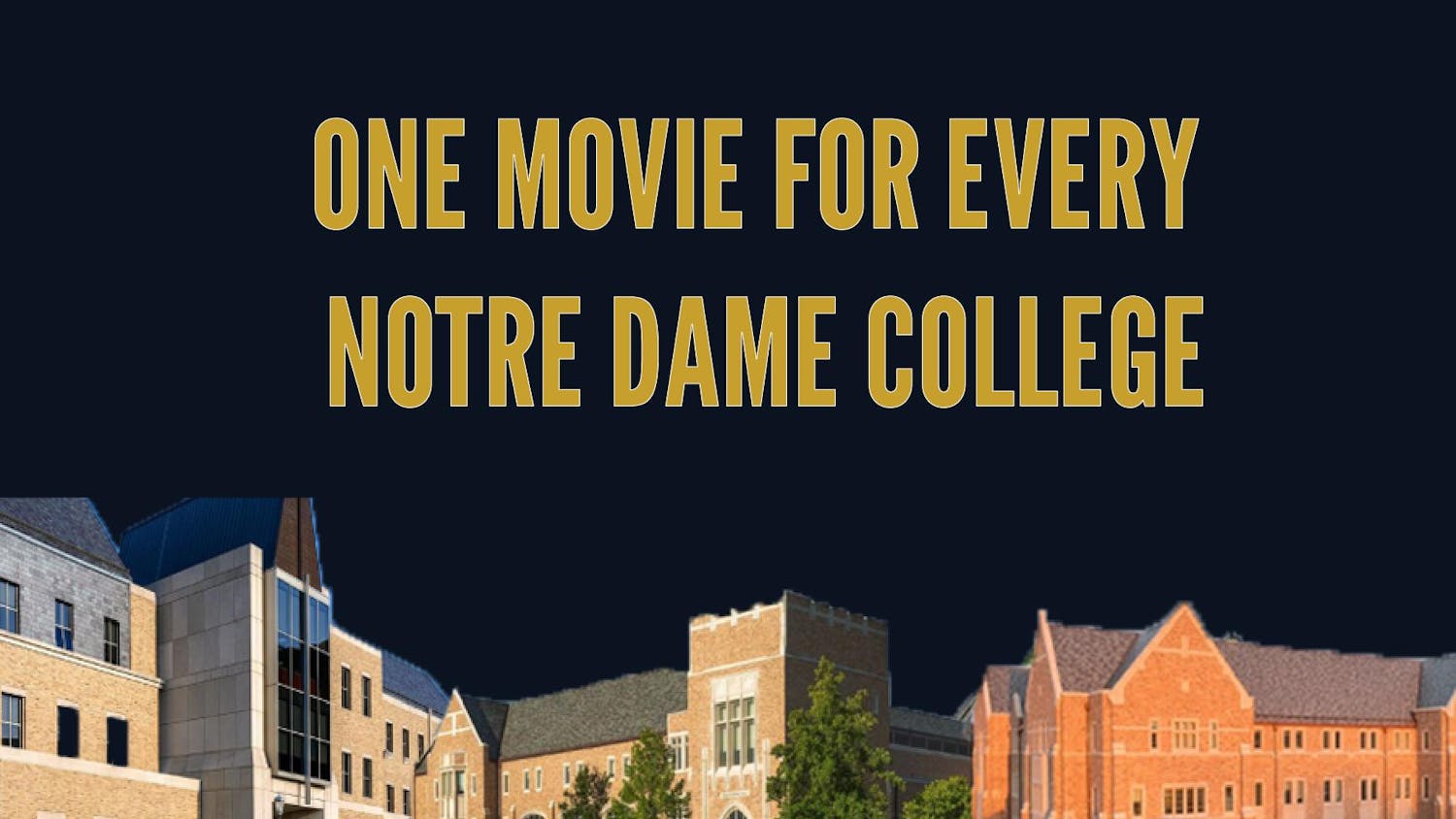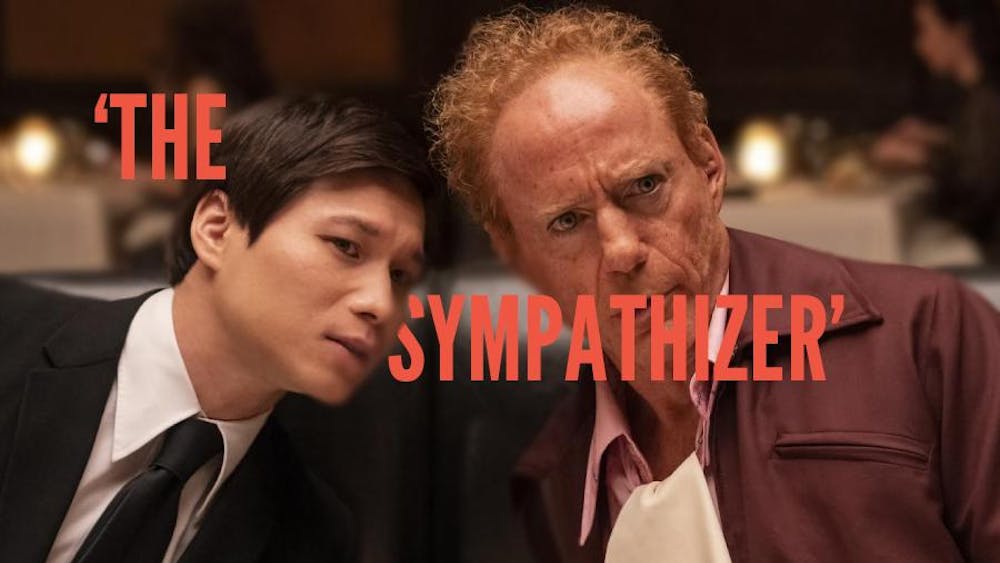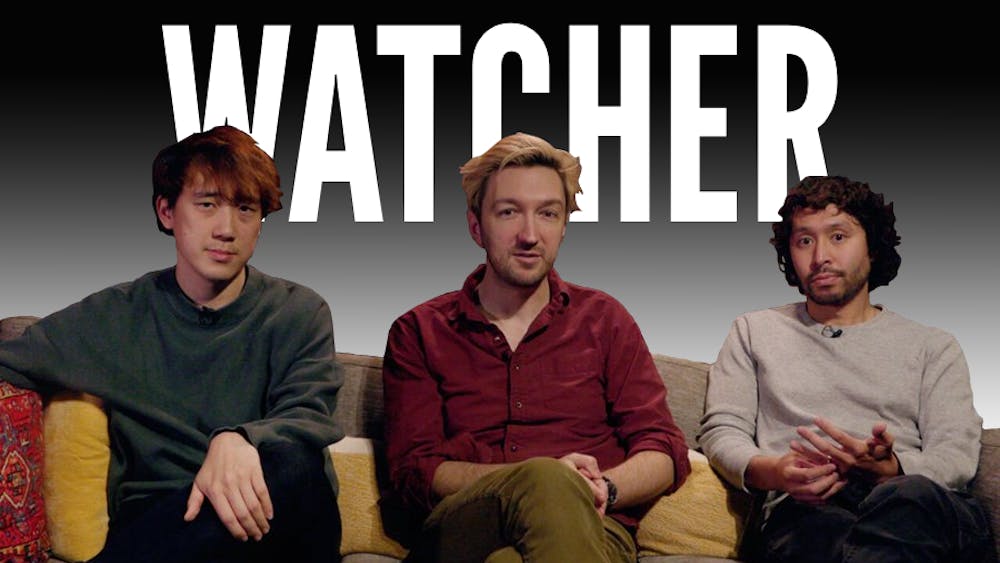I am 7 years old, and my older brother Johnno and I are having a very un-PC time listening to Puff Daddy and the Family's "No Way Out."Johnno has somehow convinced my mother to buy us this album. It's the edited version, but my brother helps me fill in the blanks. I am still at a loss for how my brother was ever introduced to the genre. Whoever this Nike-sporting peer was, I often wonder if I would be more inclined to kiss him on the forehead or kick him in the groin. For these reasons, I have never sought him out.
"No Way Out," the title track, blasts from Johnno'sboombox in the corner of our parents' bedroom. Over its mournful humming, helicopters, police sirens and Puff Daddy's unconvincingly dramatic prayer, Johnno and I are running around the room, imagining we are thugs in the ghetto, running away from the police for one reason or another.

And, of course, this is all being imagined in the most ignorant sense. A sense which only prepubescent suburban kids can achieve. To us, the ghetto isn't a symbol of modern American poverty. The ghetto isn't a loaded political issue. To us, the ghetto is just about adventure. About running from the powers that be and trying to realize rags-to-riches any way possible.
My hip-hop love affair, or some sort of affair whose true signifier I have yet to determine, is beginning.
In a way, we can't be blamed for this simplistic evaluation of urban culture. Everything we knew, we were learning from our rap music. We had yet to traverse the lyrical masterpieces of Nas and Jay-Z or explore the twisted mentality of the Wu-Tang Clan. That is, we were hip-hop amateurs. Things hadn't gotten serious yet. We were listening to the cool rap. The rap that refused to explore the moral no-man's land between police brutality and complete ethical disregard. In the world of the rap we consumed, everything was black and white. Us vs. Them. Get Rich or Die Tryin'. And everything was inexcusably danceable.
"No Way Out" is Puff Daddy's "The Chronic," if he ever made one. When I listen to it now, 15 years later, it still manages to be a ton of fun. Puff Daddy and his Hitmen production team steal (excuse me, "sample") their way into some funky jams. And the whole thing wraps up with "I'll Be Missing You," Puffy's ode to his recently killed golden goose, The Notorious B.I.G. The late rapper even makes a few appearances on the album, rendering the whole fiasco something akin to a one-night celebration of the life of Biggie Smalls.
My brothers and I jumped on the rap bandwagon at an interesting time. Rap, for one reason or another, decided around 1997 to become, almost exclusively, a good time. Bad Boy Records, who was responsible for four out of 10 of the most successful songs of 1997, was releasing larger-than-life dance jams. Rap was sounding less like Queensbridge and more like a day party in the middle of Times Square. In other words, rap was becoming what it needed to be in order to take its place as one of America's most influential genres. Before the manufactured thug style of 50 Cent, etc., rap needed to be as radio friendly as possible. My brothers and I were the inheritors, or victims depending on how you look at it, of this hip-hop explosion.
Around the turn of the century, we ditched the Bad Boy dance party and moved onto a crew even more invested in its material acquisitions. Johnno, my other brother Pat and I began scooping up every edited Cash Money CD that Sam Goody had in stock. For anyone who was doing anything slightly productive with their life in 1999 and inevitably missed Cash Money's minute in the sun, the now-dispersed New Orleans crew had one simple ethos: the key to happiness was bling. The rap crew spent most of its time rapping over lush southern productions about their watches, cars, helicopters and, occasionally, illegitimate children. In terms of Bad Boy Records, Cash Money was mostly a step backward. The rhymes were less intelligent, and the morals were even further divorced from our own. However, it caught our attention nonetheless.

Our strange interest in urban culture clues one into the defining reason why Hip-hop has been so important. Hip-hop was a gateway to another world. A world we otherwise had no connection with, though it was very much a part of American culture. Hip-hop brought the perversities, horrors and intricacies of urban America to suburban America's doorstep. But it wasn't in a pamphlet asking for money. It wasn't in the form of a PSA warning about gang violence. It was over a break-beat that made you dance while you thought about it. The first step to change is exposure, and rap music was urban America exposing itself, for better or for worse.
My brothers and I were ahead of the music curve, as most of our friends busied themselves with Limp Bizkit or the Backstreet Boys for a few years while we were into hip-hop. But by the time high school arrived, everyone was on the rap bandwagon. Some parents even joined in, stocking up on Sean Paul ringtones and accompanying their children to Jay-Z concerts.
However, most parents, including my own, were revolted. Rap snuck in under their noses during the early part of the 1990s, but by 2000, they had started to sniff it out. To parents who, seven years prior, had seen Los Angeles tear itself apart during the Rodney King riots, a genre that advocated violence and misogyny was certainly something to abhor. Their frustrations culminated during Eminem's rise to fame at the turn of the century.
Eminem's lyrics were not only blatantly violent and misogynistic, but his rise to fame afforded suburban white parents the opportunity to oppose the genre on race-irrelevant grounds. This wasn't a racial or socioeconomic issue. It was simple: Rap was violent and poison for the entire culture, let alone the American youth.
As I matured into my teen years, I began to adopt my parents' concerns. Though I continued to love the genre, I began to feel ethical confusion as to why.
Should I give up Hip-hop? Is it poisoning my mind? Am I simply making excuses for why hip-hop is socially acceptable, when all I really want is the music itself? What was it about rap that made me feel so ahead of the game? I was a 12 year old who had the same morally confused feelings toward hip hop that most 60 year olds had towards the atomic bomb. I disobeyed my parent's orders and bought explicit albums. In fits of guilt I would throw them in the trash, and then recover them several days later before it was too late.
I tried some of the lightweight rappers. I bought Will Smith's "Willenium" and pretended it was Ruff Ryders. But it seemed the more morally repugnant the rapper, the more I desired to tune in. Eminem, Jay-Z, DMX. Those were my favorites. Now that I am older, I realize that this ignoble desire to listen to grittier rap had more to do with the fact that Jay-Z was one of the best rappers in the world while Will Smith had the artistic faculty of a doorknob. In other words, I didn't like these artists because they were more explicit.
It was around this time, when my crisis of conscience was reaching a meltdown, that rap started to do me favors. Having been ahead of the game, I began to appear cool to my friends. The popular kids in class wanted to come over and here my Dr. Dre album. Likewise, I, unlike most others, had been watching "Rap City" on BET the previous night and could elucidate my opinions about the new Snoop Dogg video.
When rap's novelty wore off and I could no longer wear my rap knowledge as a badge, I still found a personal sense of fulfillment in hip-hop. For one reason or another, rap made me feel cool. There was something inexplicably wonderful about the hip-hop attitude. It was a carefree rejection of vanity. It was a denunciation of the powers that be, and an appraisal of rivalry and achievement through hard work, and yes, selfishness.
I have since realized that there were, no doubt, countless others to whom hip-hop surely meant considerably more. I was never bullied. I was rarely depressed or made to feel worthless. My upbringing was devoid of any major issue. Hip-hop simply made me feel better on the rare occasion that I was, so to speak, down in the dumps. How important, then, must this feeling have been to those constantly against the ropes?
I have recently spoken to several younger friends who affirmed their indebtedness to rap. Ironically, their favorite always tends to be Eminem. Despite his objectionable content, Eminem's body of work is largely concerned with his troubled younger life. Bullied by both peers and his mother, Eminem's attitude can be read as a concurrently humorous and spiteful response to our mean and selfish culture. When one plays "My Name Is," Eminem's first major radio single, one can hear the wonderfully careless tone Eminem takes in provoking a society that let him down. In a weird way, it's beautiful. He is making America upset for strange and occasionally vane reasons, and subsequently exposing how hypocritical and backwards modern society can be. "Hey Kids, do you like violence?" "Yeah!" I pity anyone who doesn't find that lyric hilarious.
Eminem is being cool in his own way. It's the anthem of anyone who never fit in. Anyone without a clear way to the top. Eminem, the least likely of all heroes, found a way. "My Name Is" is Eminem sticking his tongue out at everyone who told him he'd never make it.
No, Eminem wasn't a cultural genius. Nor was he a role model. And to be fair, he never claimed to be either. In fact, I think most hip-hop artists are idiots. Their words can be as cavalier as they are senseless. If any cultural force has tested the legitimacy of free speech more than the Westboro Baptist Church, it has been hip-hop.
But free speech stands strong, and reminds us that even what criminals and pimps have to say might make a difference. In fact, most of hip-hop's finest have been at one time or another disregarded or cast aside. Their poetry exposes our own cruelty and neglect.
There is clearly something worthwhile in the hip-hop attitude. Something very palpable to not only me, but also the millions of listeners the genre has won since its birth.
So no, rap has never been easy to love. It has caused headaches, stomachaches, groundings and an unhealthy amount of time and money. But it has very much been worth it. Hip-hop continues to fascinate and thrill me, in addition to making me feel the occasional burst of cool.
Contact Mac Hendrickson at mhendri1@nd.edu
The views expressed in this column are those of the author and not necessarily those of the Observer.












